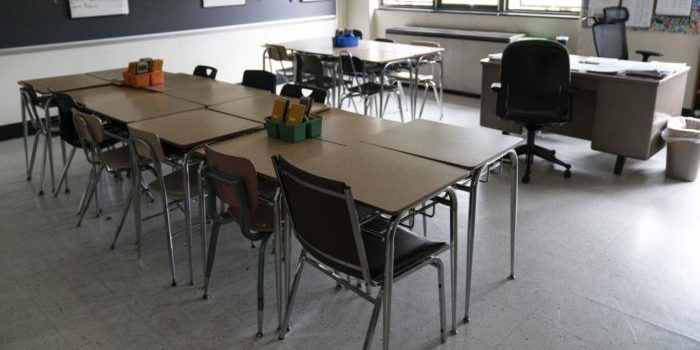(Matthew Doarnberger, Headline USA) Legislators in Ohio have introduced a bipartisan bill that would pay children in grades as low as kindergarten to attend school, the New York Post reported.
As a result of increased absenteeism among students, House Bill 348 attempts to establish two pilot programs and allocate $750,000 to fund each program.
“We went from 15% pre-pandemic to over 31% in this most recent school year,” said bill co-sponsor Dani Isaacsohn, a Cincinnati Democrat, according to the Statehouse News Bureau.
That’s almost a third of our ninth-graders that spend their first year of high school missing more than ten percent of their school days. This is the number one issue we are facing in education,” Isaacsohn added.
The bill’s other co-sponsor, Republican Bill Seitz, expressed frustration in trying other methods to get children into the classroom.
“So, we’ve tried pizza day and we have tried playground hours and we have tried all kind of foo-foo stuff. It doesn’t seem to work,” he said.
“So let us talk about the immediacy of a payment in cash,” he continued. “Cash is king. Cold, hard cash. In God we trust, all others pay cash.”
However, not all legislators in the Buckeye State were on board with these incentives. Republican Josh Williams expressed his skepticism of the proposed program.
“Why are we going to pay kids to follow the law?” he asked.
“We have laws in place that say, ‘You cannot skip school. You cannot be truant,'” he continued. “… If you don’t enroll your kids in school, you can be charged and you can be penalized.”
Williams went on to argue that by effectively rewarding and the deviant behavior, the state might be headed down a slippery slope of incentivizing other criminal conduct.
“Is this going to set a precedent for our young kids as young as kindergarten that we are going to pay you to abide by the laws moving forward?” he asked. “I mean, are we going to get to the point where we are paying rapists not to rape?”
Lawmakers in the state will have until the end of the year to pass the bill through the House and Senate. After that, it will be sent for signature to Republican Gov. Mike DeWine.

